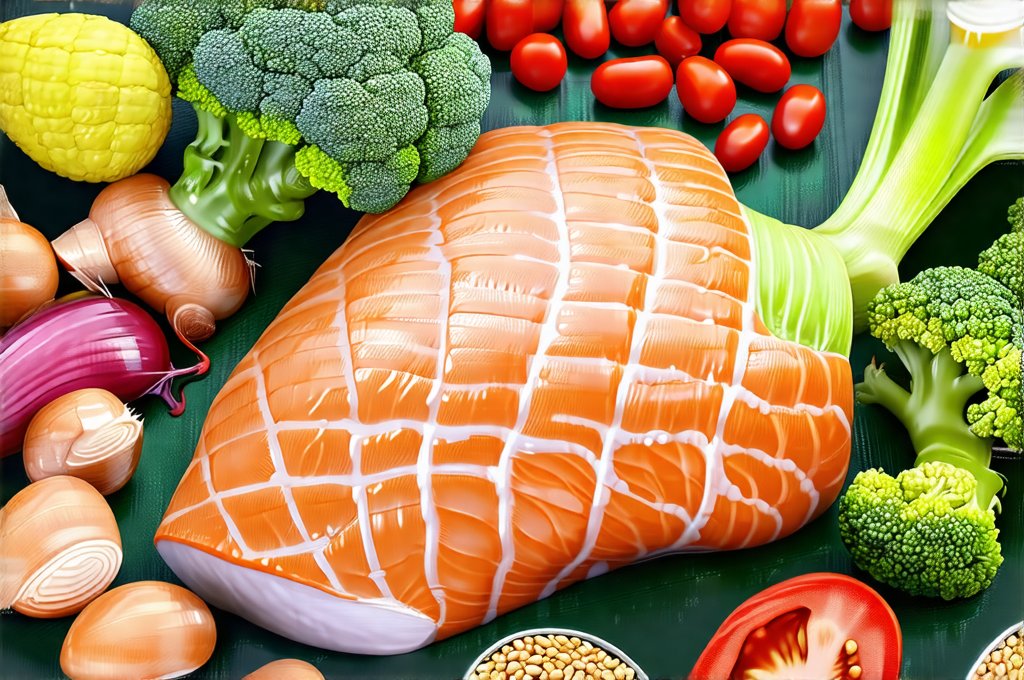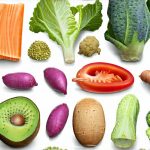Our digestive system is often taken for granted until something goes wrong – bloating, discomfort, irregular bowel movements, or simply feeling sluggish after eating. These symptoms frequently signal that our bodies are struggling to efficiently break down food, extract nutrients, and eliminate waste. While many factors can influence digestion, a significant contributor lies in the availability of digestive enzymes—proteins responsible for catalyzing the breakdown of carbohydrates, proteins, and fats into smaller, absorbable molecules. A diet lacking these enzyme-rich foods can compromise optimal digestion and overall well-being. Fortunately, incorporating specific food choices can naturally enhance our body’s enzymatic capabilities and support a healthier, more comfortable digestive process.
The good news is you don’t need to rely solely on supplements. Many delicious and readily available foods are brimming with natural digestive enzymes. From the tang of pineapple to the creamy texture of avocado, these culinary treasures offer not only exquisite flavors but also a powerful boost to our digestive system. Understanding which foods naturally contain these beneficial enzymes – amylases for carbohydrate digestion, proteases for protein breakdown, and lipases for fat digestion – empowers us to make informed dietary choices that actively support healthy food breakdown. This article will explore the science behind digestive enzymes and then delve into practical meal ideas designed to optimize your digestive process through strategic food selection.
The Science of Digestive Enzymes & Food Sources
Digestive enzymes are essential for transforming the foods we eat into usable energy and nutrients. Without them, our bodies would struggle to absorb vital components from even the healthiest meals, leading to deficiencies and discomfort. There are three main categories: amylases, proteases, and lipases. Amylases break down carbohydrates into sugars; proteases dismantle proteins into amino acids; and lipases decompose fats into fatty acids and glycerol. Our bodies naturally produce these enzymes, but production can decline with age or be compromised by various factors like stress, poor diet, and certain medical conditions. This is where enzyme-rich foods come into play – supplementing our natural supply and aiding in efficient digestion.
Pineapple, for example, contains bromelain, a potent protease that aids protein digestion. Papaya boasts papain, another powerful protease known to reduce bloating and improve nutrient absorption. Mangoes are rich in amylases, supporting carbohydrate breakdown. Avocados contain lipase, assisting with fat digestion. Even fermented foods like yogurt and kefir are excellent sources of enzymes due to the bacterial action during fermentation. It’s important to note that cooking can deactivate some enzymes, so incorporating raw or lightly cooked enzyme-rich foods is ideal for maximizing their benefits. Furthermore, combining different food sources provides a broader spectrum of enzymatic activity, addressing various dietary components effectively. If you struggle with digestive issues related to diet, consider exploring why processed food and artificial additives can lead to long term discomfort.
Building Enzyme-Rich Meals: Practical Examples
Creating digestive-friendly meals doesn’t require complex recipes or exotic ingredients. It’s about strategically incorporating naturally enzyme-rich foods into your existing diet. A simple breakfast could involve adding a slice of pineapple to your oatmeal (providing bromelain alongside the fiber from oats). Lunch might feature a salad with avocado and papaya, offering lipase and papain for improved fat digestion and protein breakdown. Dinner could include grilled salmon served with steamed vegetables and a side of fermented yogurt – providing omega-3 fatty acids, essential nutrients, and probiotic enzymes for overall digestive health.
Beyond specific foods, preparation methods matter too. Opting for lightly steamed or raw vegetables preserves their enzymatic activity. Marinating meat in papaya or pineapple juice tenderizes the protein while pre-digesting it with bromelain and papain. Incorporating fermented condiments like kimchi or sauerkraut into meals adds a probiotic punch alongside digestive enzymes. A key principle is mindful eating – chewing food thoroughly allows more enzyme access, initiating the digestion process even before it reaches the stomach. This holistic approach—combining strategic food choices with proper preparation and mindful consumption—can significantly enhance your body’s ability to break down and absorb nutrients effectively. Remember that aging affects digestive speed and sensitivity to heavier meals as we age, so adjust your diet accordingly.
Optimizing Carbohydrate Digestion
Carbohydrates are a primary energy source, but incomplete breakdown can lead to bloating and discomfort. Fortunately, several foods naturally support carbohydrate digestion through amylase content. Sweet potatoes, for instance, contain amylases that help transform starches into simpler sugars. Barley grass juice powder is another excellent source of amylase, often added to smoothies or juices. Mangoes, as previously mentioned, are also rich in amylases and offer a delicious way to boost carbohydrate breakdown.
- To further enhance carbohydrate digestion:
- Pair carbohydrate-rich foods with enzyme-rich choices like mango or papaya.
- Focus on complex carbohydrates over refined sugars for sustained energy and digestive health.
- Chew food thoroughly to initiate enzymatic activity in the mouth.
If you find yourself struggling with sugar, sweeteners, or high glycemic meals, learning about managing digestive reactions can be very helpful.
Enhancing Protein Breakdown
Protein is essential for building and repairing tissues, but it requires efficient breakdown into amino acids for absorption. Pineapple and papaya are star players here, delivering bromelain and papain respectively – powerful proteases that facilitate protein digestion. Fermented dairy products like kefir also contain enzymes resulting from bacterial fermentation, aiding in protein breakdown and improving gut health.
- Consider these strategies:
- Marinate meat in pineapple or papaya juice before cooking to tenderize it and pre-digest proteins.
- Include fermented foods with meals containing protein sources for enhanced digestion.
- Opt for lean protein choices that are easier to digest.
It can be helpful to understand using food journaling to correlate emotional patterns with digestive symptoms, too.
Supporting Fat Digestion
Fats provide essential fatty acids and support hormone production, but their digestion requires lipase enzymes. Avocados stand out as a top source of lipase, aiding in the breakdown of fats into absorbable components. Raw dairy products, if tolerated, also contain lipase naturally present in milk. Additionally, incorporating healthy oils like olive oil or flaxseed oil with enzyme-rich foods can further support fat digestion and absorption.
- Implement these practices:
- Combine avocados with meals containing fatty acids for optimized digestion.
- Choose healthy fats over processed or trans fats to minimize digestive strain.
- Consider adding a small amount of olive oil to salads alongside enzyme-rich vegetables.
If you often find yourself skipping meals due to anxiety, breaking the cycle can be a great first step toward feeling better. And remember that even simple changes like improving posture during and after meals can help reduce discomfort.


















